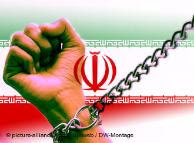 |
Worldwide attention has focused today on the death of Ziad Abu Ein, the Palestinian minister in charge of the Settlements and Annexation Wall portfolio, after he participated in a nonviolent demonstration north of Ramallah, in the West Bank. He had joined Palestinian farmers from the village of Turmusaya who were protesting today, Human Rights Day (10 December), to regain access to their land. While the circumstances of Abu Ein’s death are not yet clear, the reason for the demonstration and the way Israeli security forces handle Palestinian protests are all too familiar.
The demonstrators were holding saplings to plant on their plots of land, to which they have been barred access since the establishment of Israeli outpost Adei Ad east of their village. Such settlements, which are officially unauthorized by the state, are yet another means by which Israel has taken over land in the West Bank, excluding Palestinians from vast areas there. Although portrayed as the action of extremist settlers, the establishment of these outposts is in fact a state enterprise assisted by all government bodies, whether actively or by omission, a fact that has been well documented ( See “The Road to Dispossession” by human rights organization Yesh Din for a case study of Adei Ad, and “Access Denied” by B’Tselem for details of this policy implemented throughout the West Bank). The protest today accompanied a High Court petition for the evacuation of the Adei Ad outpost, filed by the residents through Yesh Din. As in other cases in the West Bank, the decision to demonstrate to regain access to the land was made after all other avenues had been exhausted, including letters to authorities, legal action, involvement of international actors, media reports, and more. None of these efforts helped the landowners reclaim their property, nor did they improve the conditions of Palestinian communities harmed by the existence and expansion of the outpost. Any form of Palestinian protest against the occupation, even when it is entirely nonviolent (as was apparently the case today) is unlawful under the Israeli martial law that applies to Palestinians in the West Bank. Israeli security forces are authorized to disperse any Palestinian demonstration, even when participants are nonviolent (see B’Tselem position paper on the right to demonstrate in the Occupied Territories), and often do so. To that end, they use crowd control weapons including stun grenades, tear gas grenades and “skunk” liquid (see B’Tselem report “Israel’s Use of Crowd Control Weapons in the West Bank”), as well as physical violence. Israeli security forces also arrest and prosecute demonstration organizers and participants, even when they are nonviolent. Needless to say, it is very rare for such measures to be taken against settlers protesting nonviolently. To the best of B’Tselem’s knowledge, and based on footage published by the media, the forces dispersed the protest today with tear gas grenades and stun grenades and also used physical violence to block the procession, in which Minister Abu Ein was participating. The state sends settlers to forcefully take over Palestinian land in the West Bank and then sends the army to forcefully silence protest against the land grab – sometimes, at a lethal price. That is how Human Rights Day looks for people who live under occupation, where even demonstrating against dispossession is not allowed. That is what life, and sometimes death, under occupation looks like. Photo: Palestinian Minister Ziad Abu Ein demonstrating today (10 Dec. 2014) at Turmusaya. Photo by Muhammad Torokman / Reuters |








هیچ نظری موجود نیست:
ارسال یک نظر